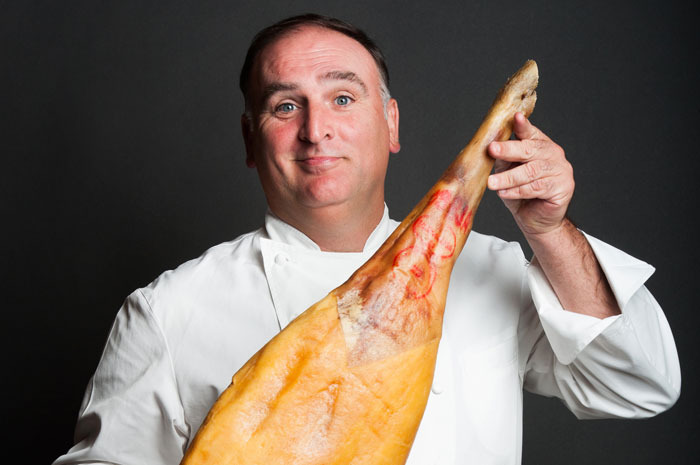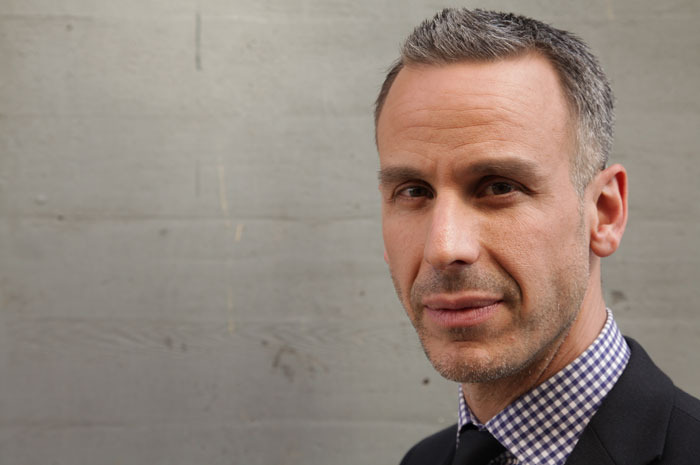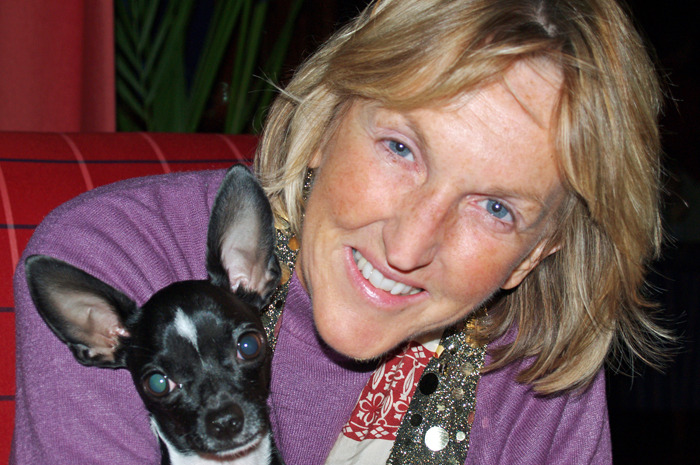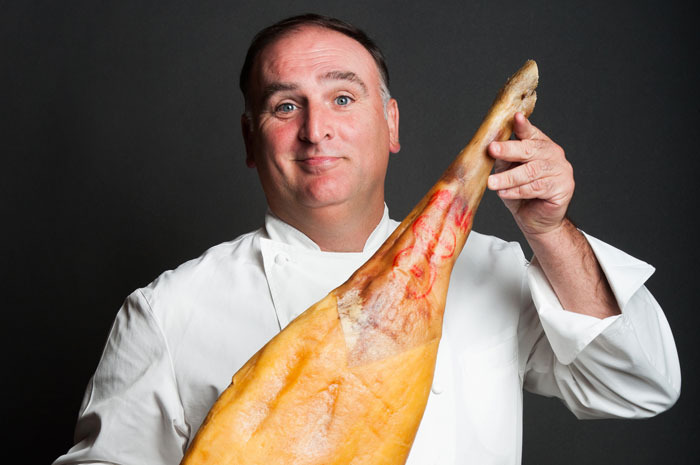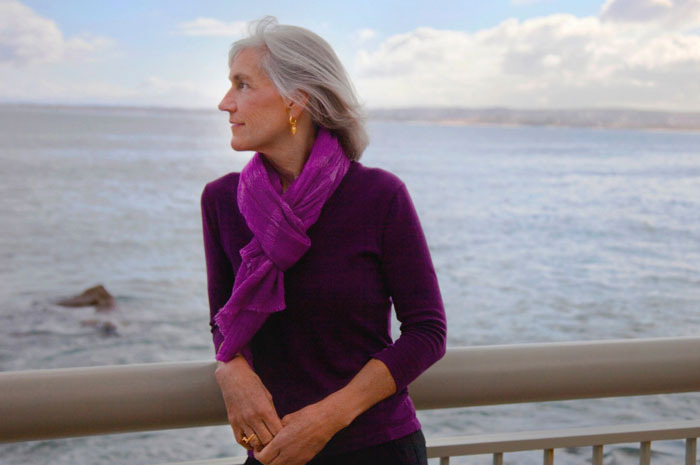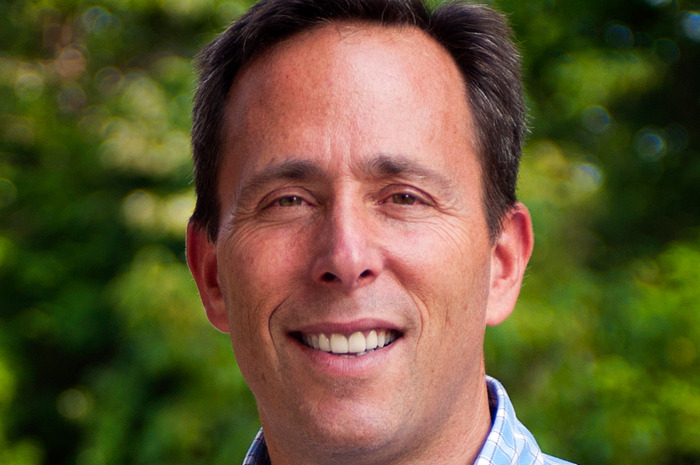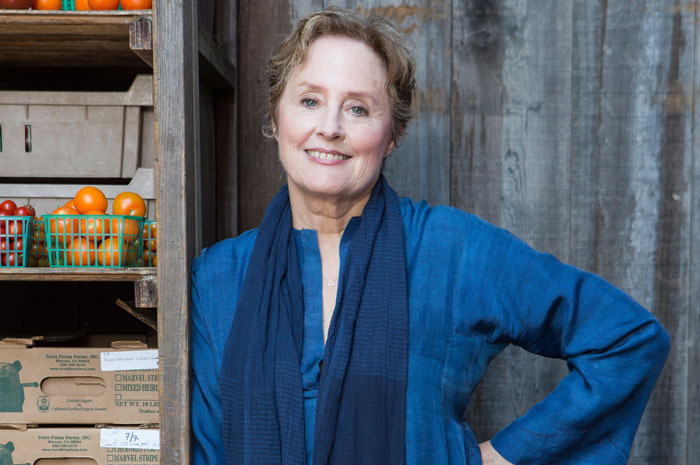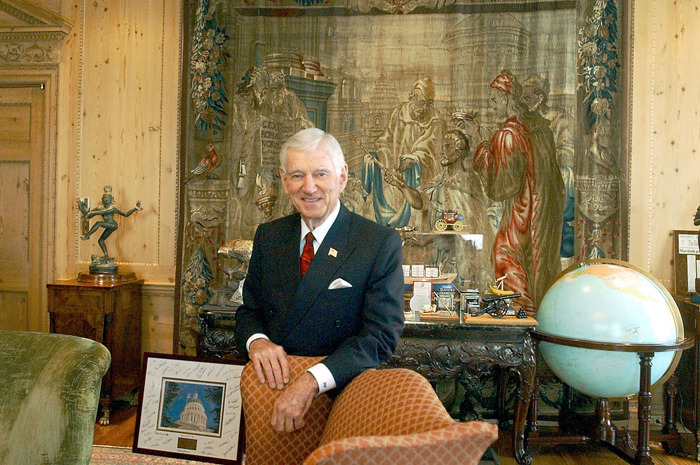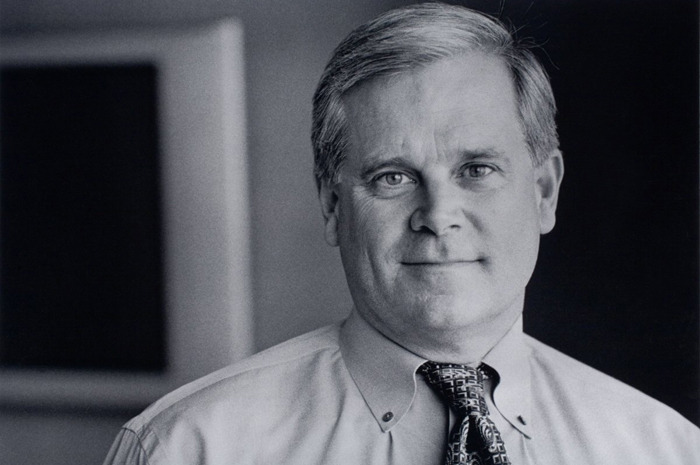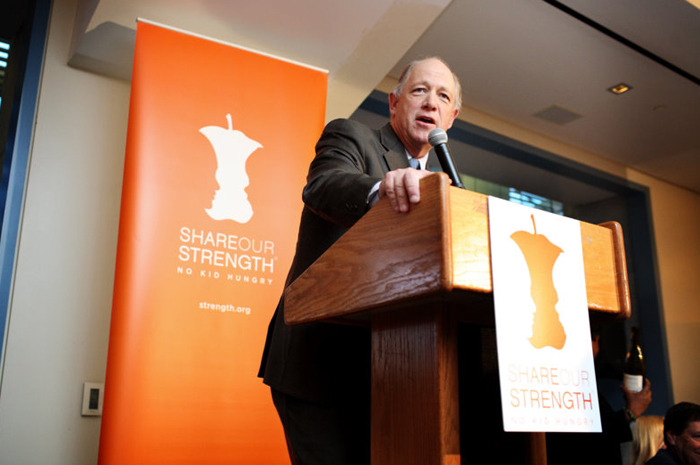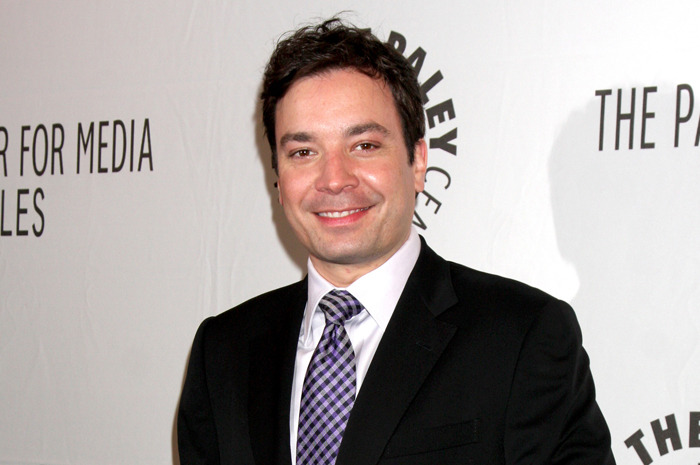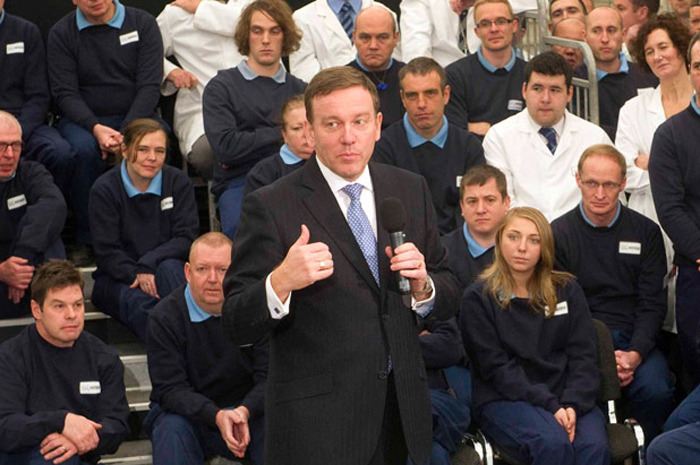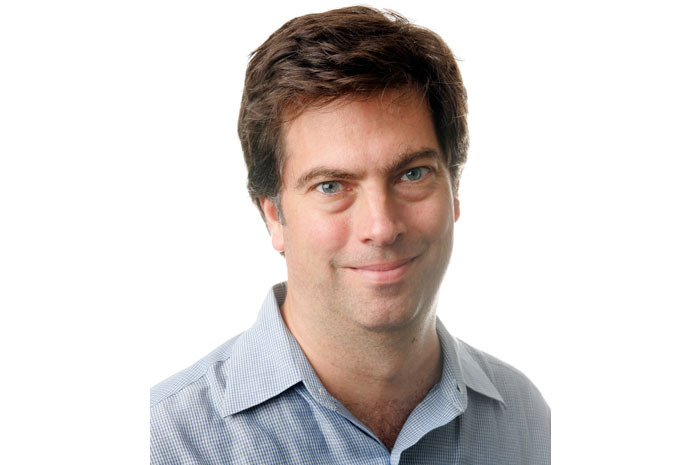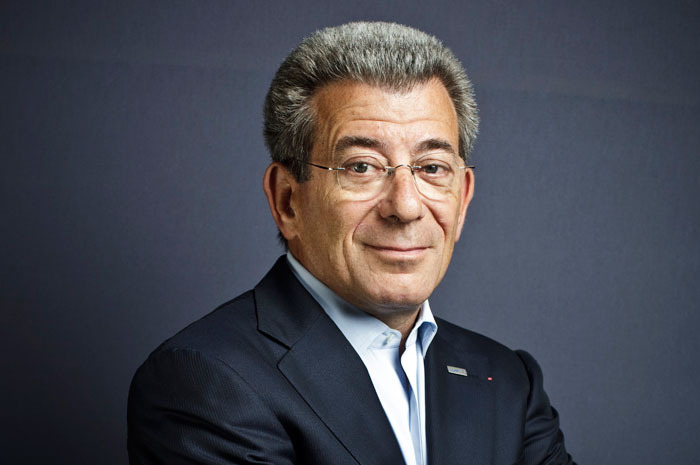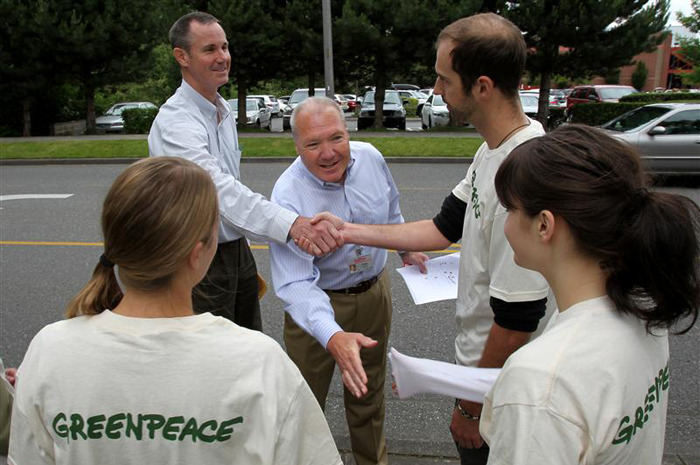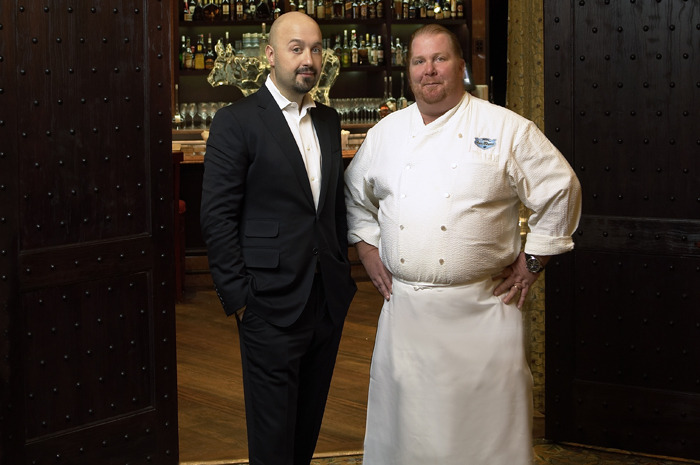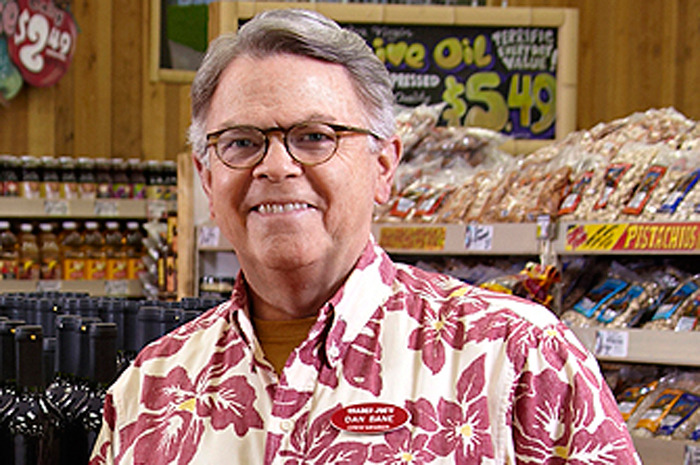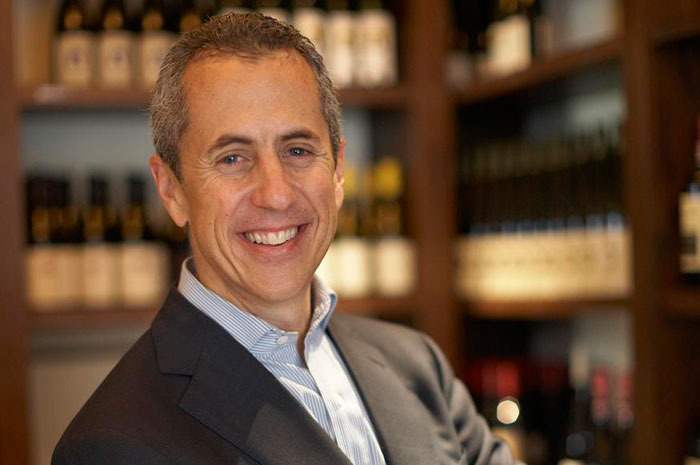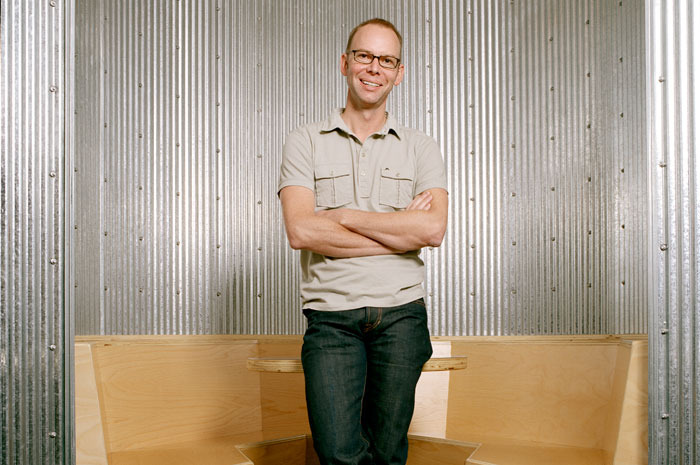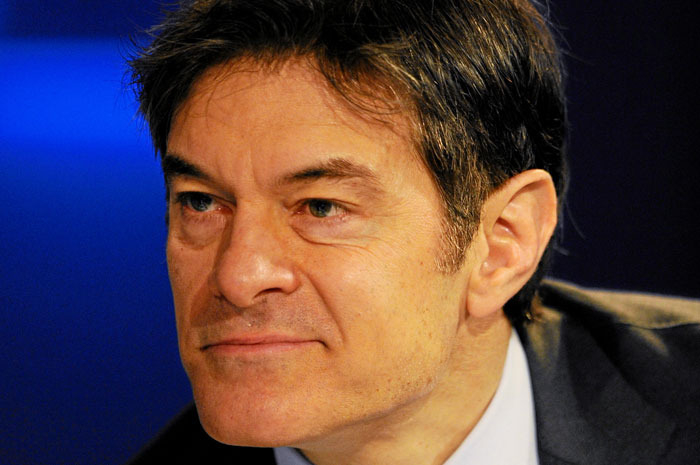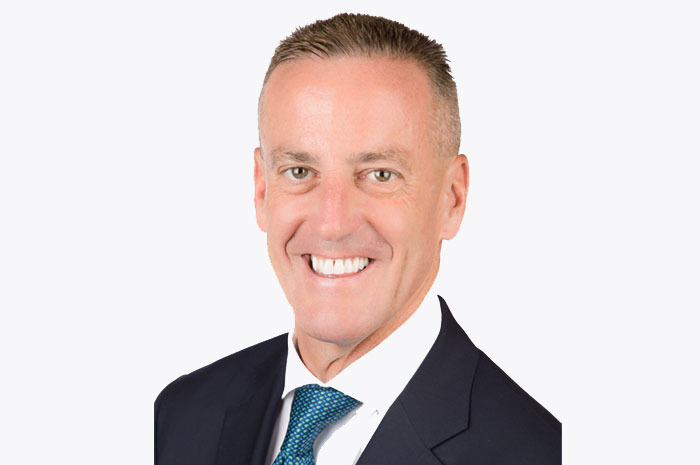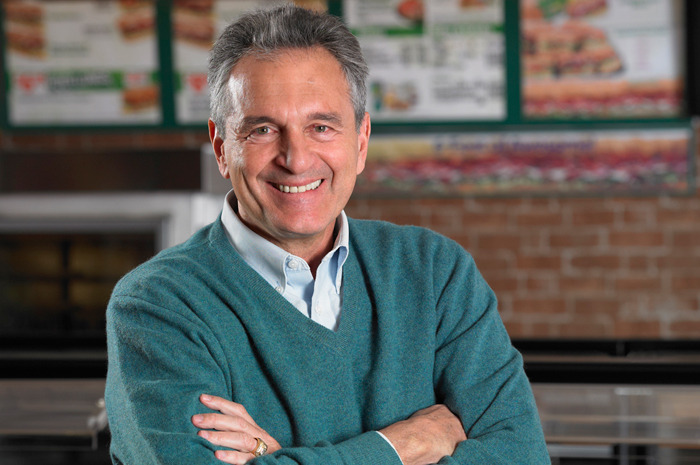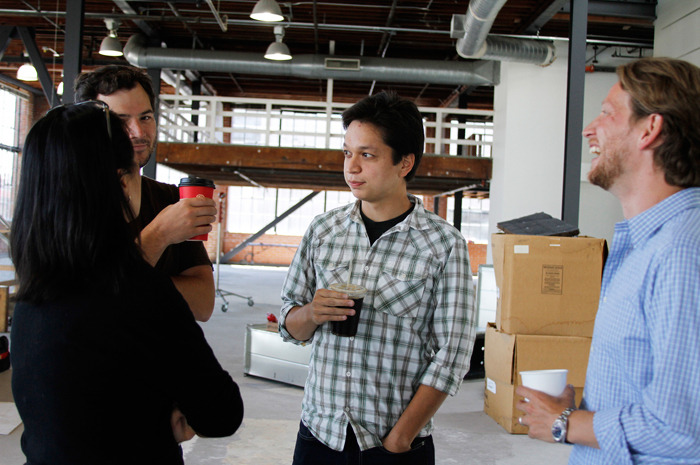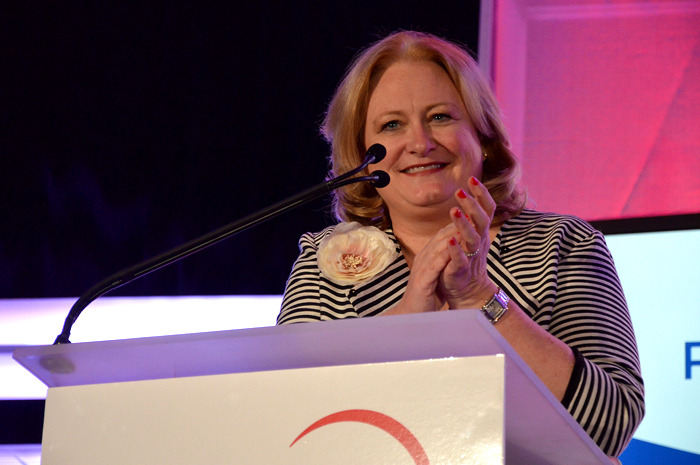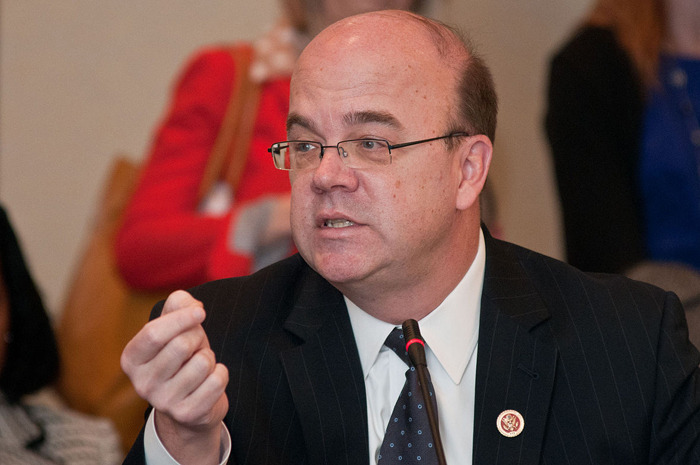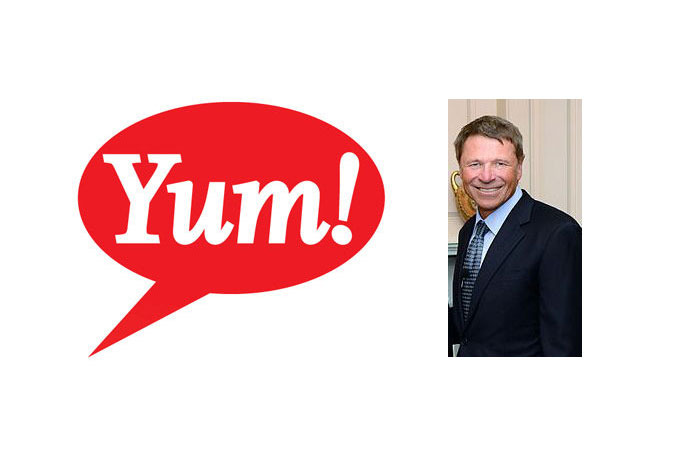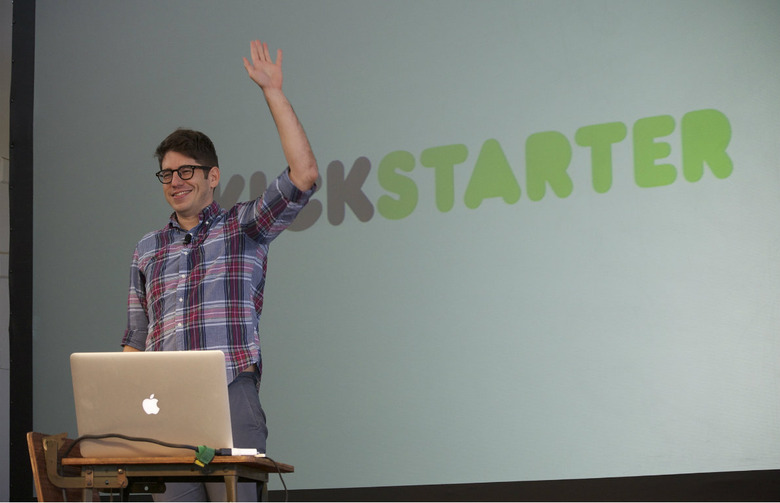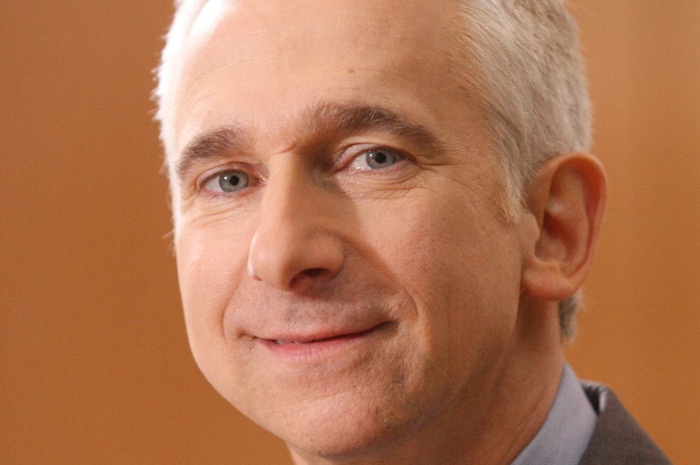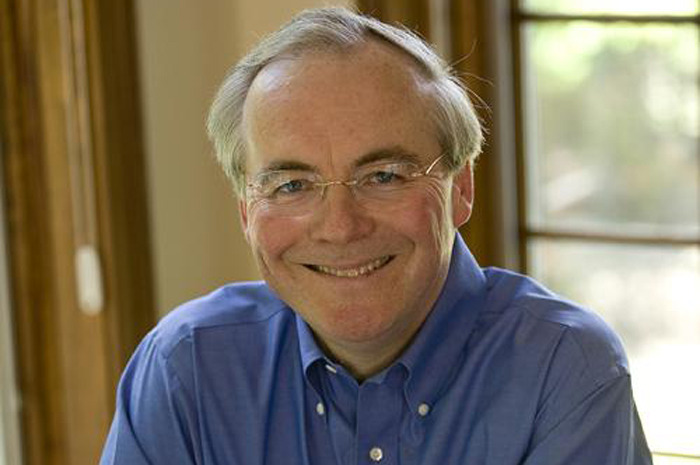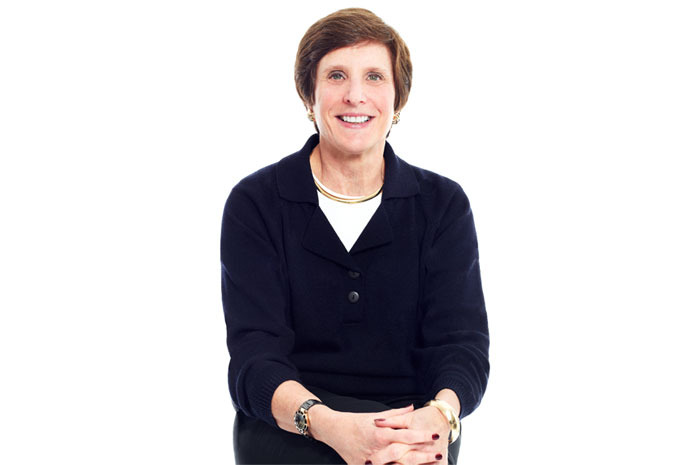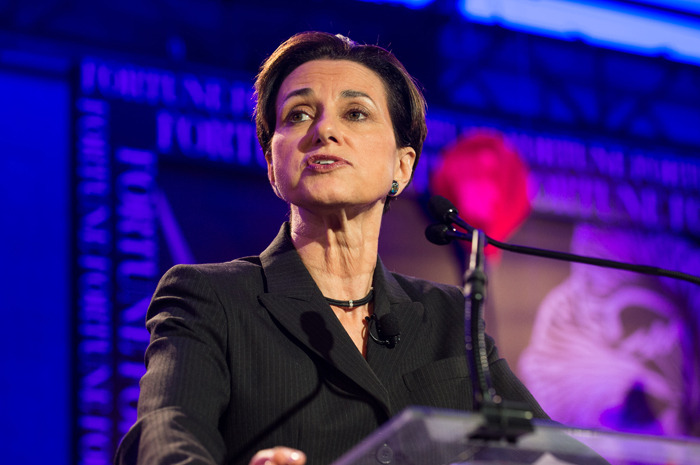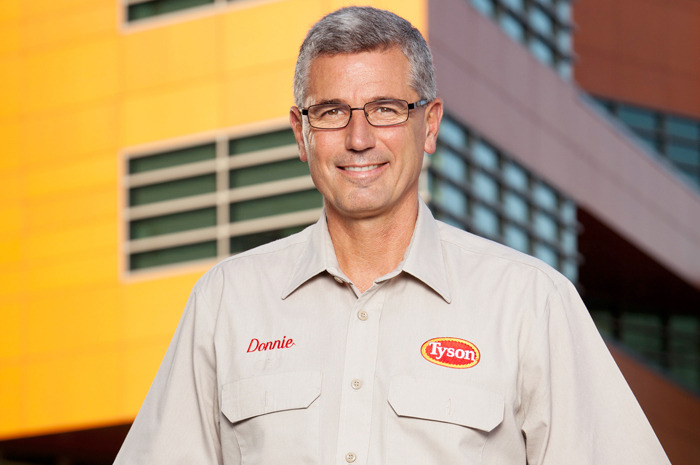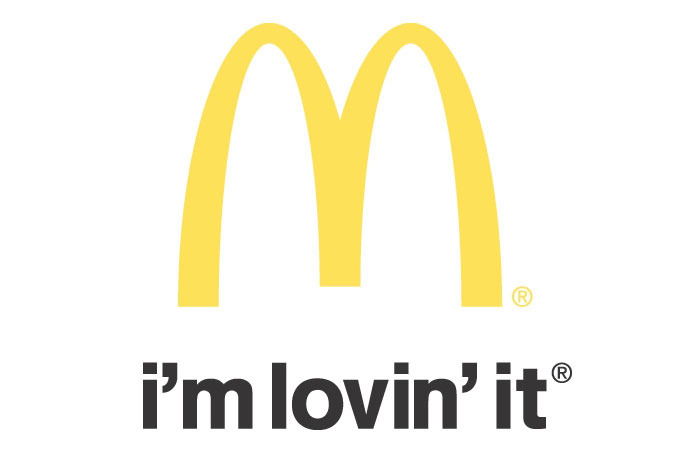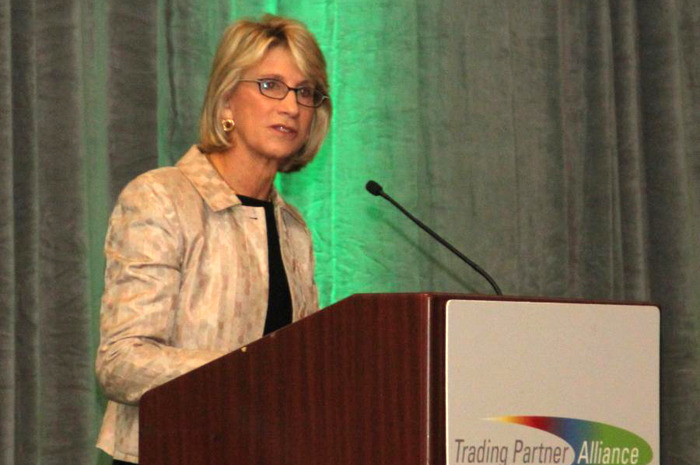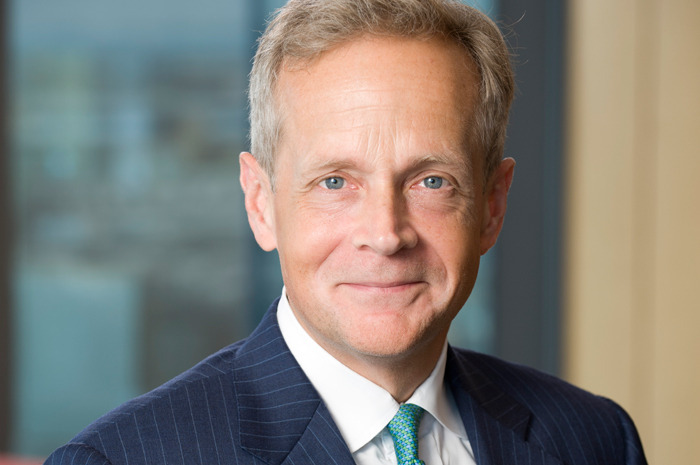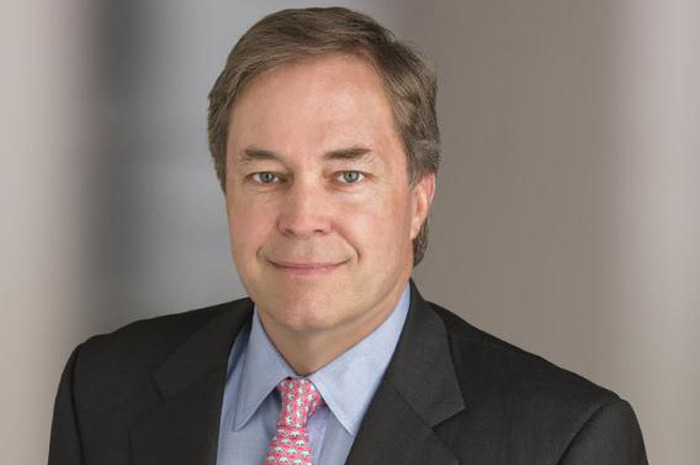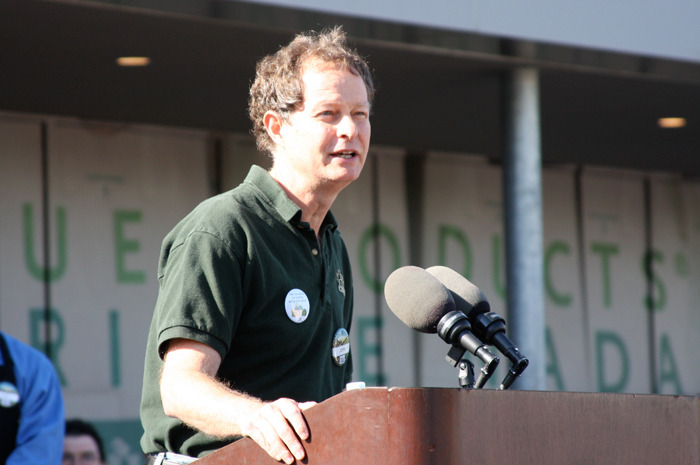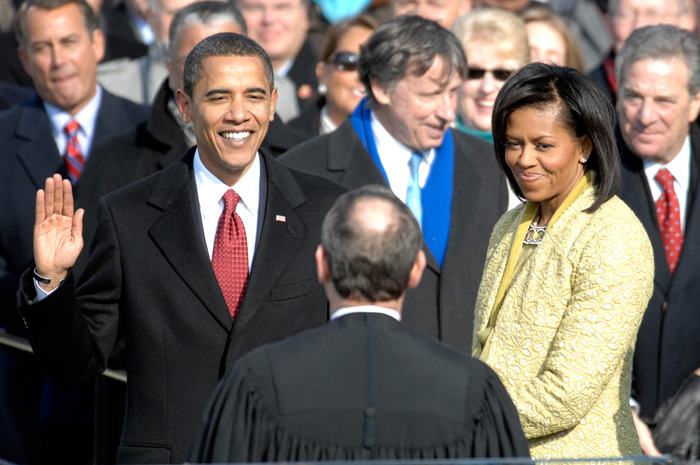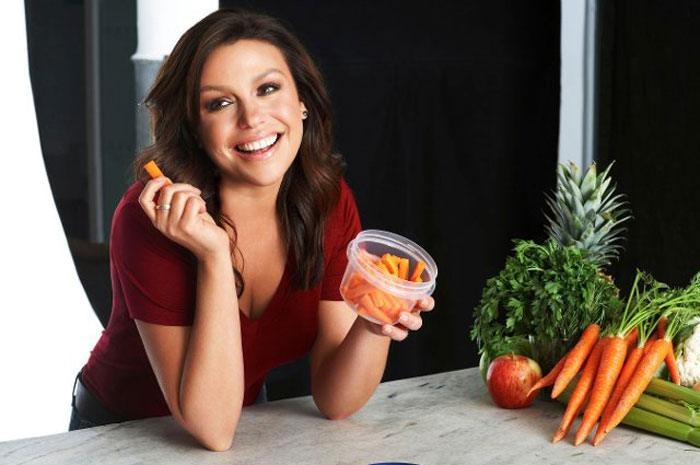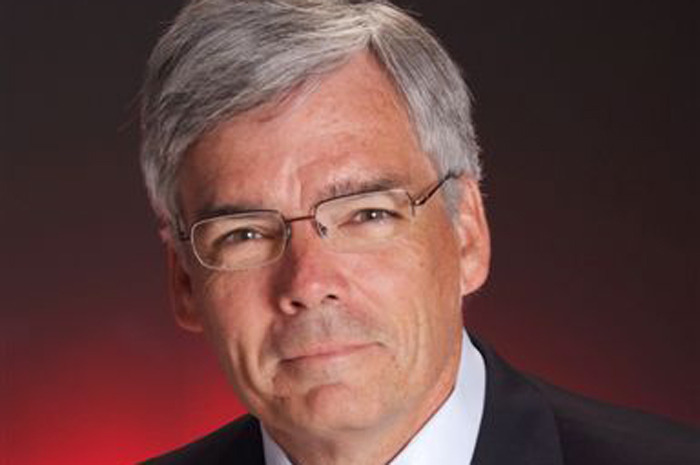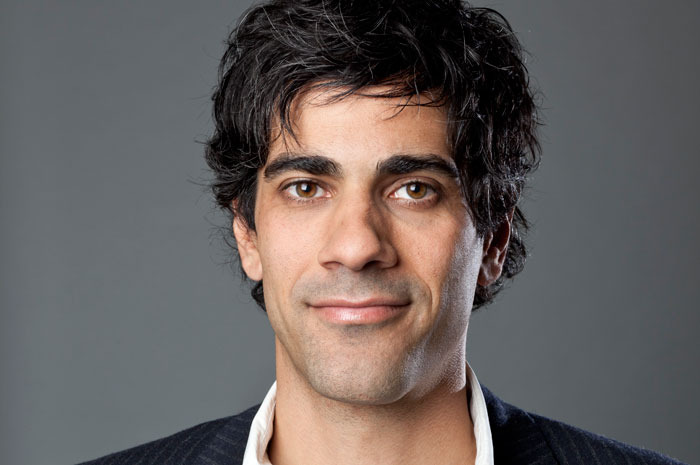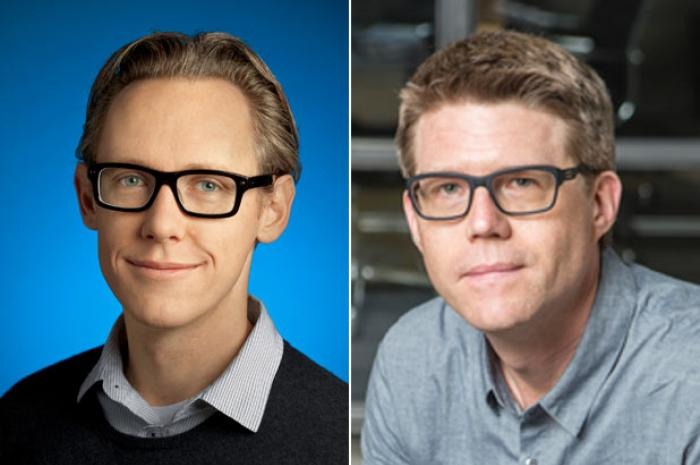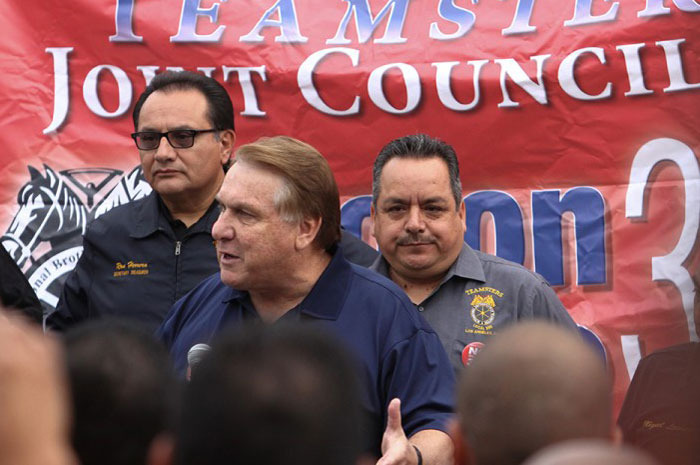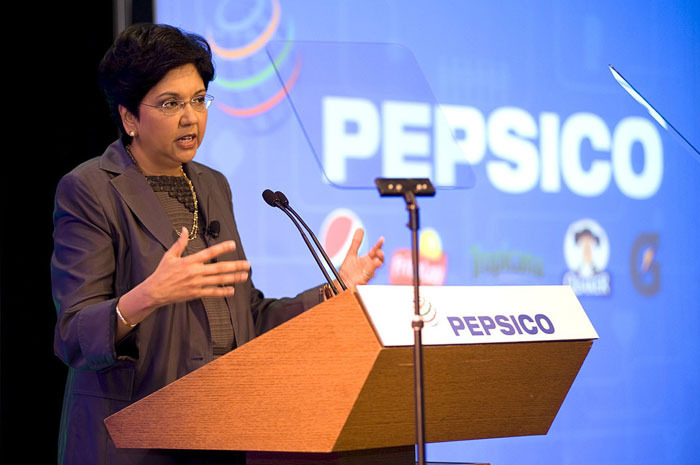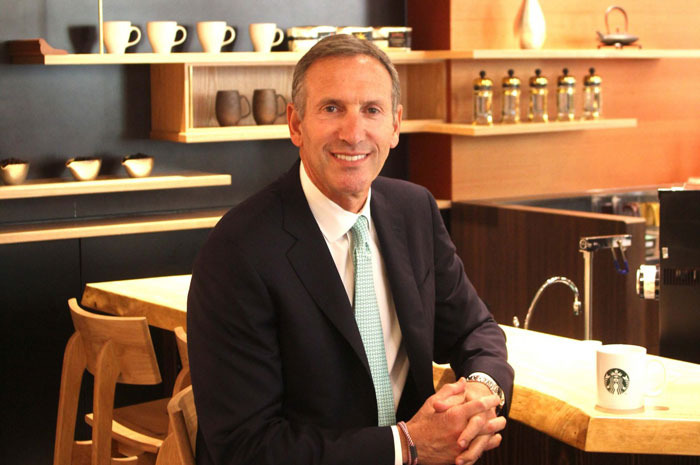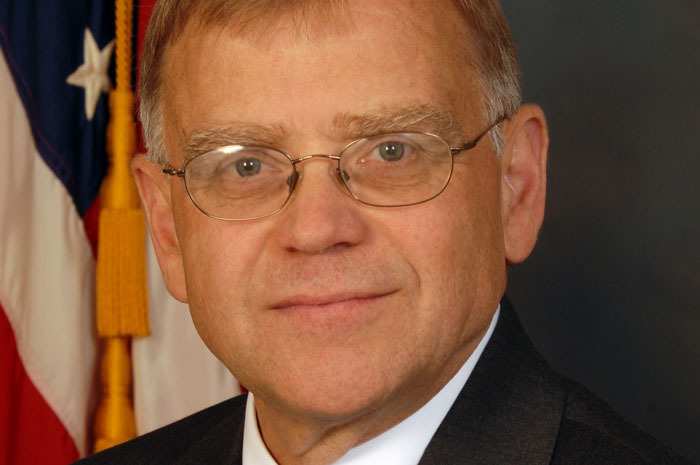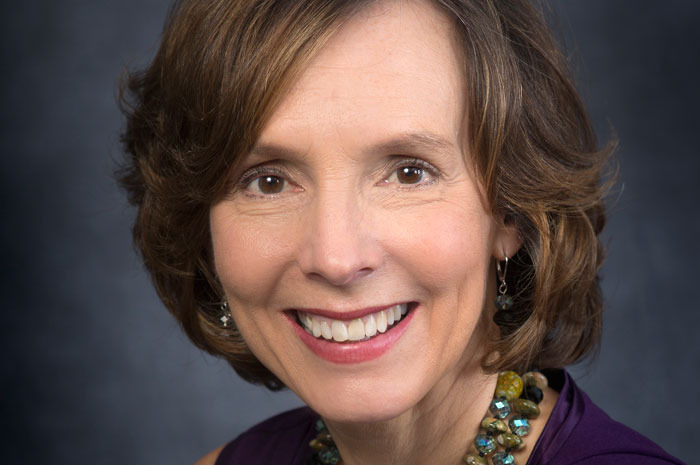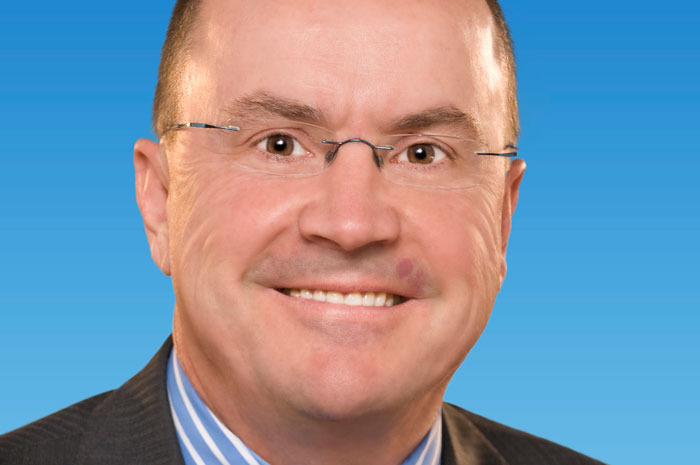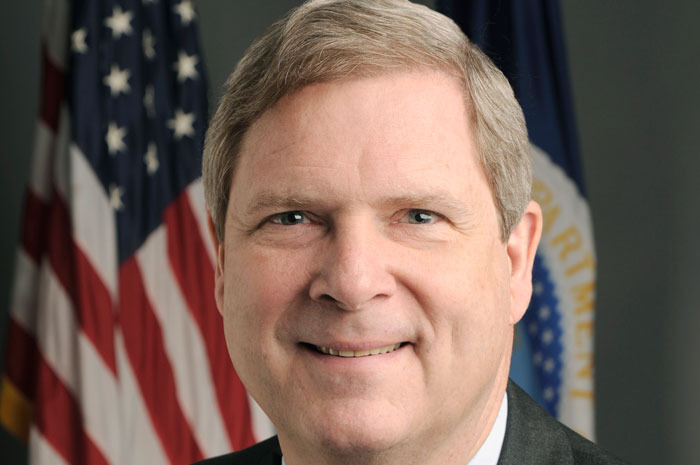America's 50 Most Powerful People In Food For 2015
Food is power, or at least an instrument of power — economic, political, moral. Those who control our food supply control us, for better or worse. They decide, to a greater extent than we imagine or would like, what and how we eat — if we eat, in extreme cases. Who are these people? Who are the most powerful people in the American food world?
#50 Adam Rapoport, Editor in Chief, Bon Appétit
Adam Rapoport spent a decade as style editor at GQ Magazine before taking the helm of Condé Nast's second-largest-circulation magazine in 2010, and in an era when everything is going digital, he's keeping things fresh, relevant, and fun. Under his reign, they've brought more celebrity contributors on board, launched rankings like The 20 Most Important Restaurants in America, debuted gorgeous new apps, and expanded their digital presence, all while spreading the gospel of cooking, dining, and shopping, and having a ball doing it.
#49 Ingrid Newkirk, President and Co-Founder, People for the Ethical Treatment of Animals
The vocal head of this increasingly high-profile organization, Newkirk led the company to another banner year in 2014. The World Trade organization upheld the EU's ban on seal fur imports with PETA's help, their wool industry exposé has been viewed nearly 4 million times, and their relentless campaigning against cruelty at SeaWorld has educated millions. The group's ever-widening influence on government agencies and courts demonstrates the power that the group has harnessed through its sometimes controversial awareness campaigns.
#48 José Andrés, Chef-Restaurateur
This ceaselessly energetic Asturian-born chef has almost single-handedly introduced Americans to real Spanish food — both avant-garde and traditional — as it is prepared and served in the twenty-first century, through his restaurants (among them minibar, é by José Andrés, three Bazaars, and four Jaleos, stretching from Washington, D.C. to Los Angeles by way of Las Vegas), but also through his cookbooks and TV appearances. He has been named Dean of Spanish Studies at Manhattan's International Culinary Center, where he supervises a one-of-a-kind Spanish cooking curriculum (developed with our own editorial director, Colman Andrews). With his nonprofit World Central Kitchen, his activities in Haiti (which include a film project to celebrate that country's gastronomy), and other initiatives, Andrés is also a social activist, reminding fellow chefs of the breadth of their responsibilities to their communities. He was also named The Daily Meal's 2012 American Chef of the Year.
#47 Julie Packard, Executive Director and Vice-Chairman, Monterey Bay Aquarium
Packard, a marine biologist, has run this showplace aquarium since it was opened in 1984 with an endowment from her parents' nonprofit, the David and Lucile Packard Foundation (as in Hewlett-Packard, or HP). In addition to being a first-rate educational facility, the aquarium spearheads numerous movements aimed at ocean conservation. Its most visible immediate effect on the American food community, though, has been through its efforts as a pioneer in the sustainable seafood movement. Chefs and responsible consumers all over the country now consult its Seafood Watch list (in the form of wallet cards, a website, and an app) of sustainable choices in fish and shellfish, thus impacting the seafood marketplace from coast to coast. The Aquarium also hosts an annual Sustainable Foods Institute, addressing such issues as global food security, urban agriculture, and innovations in aquaculture.
#46 Steve Spinner, CEO, President, and Director, United Natural Foods, Inc.
When we decide that we want to eat organic, sustainable, and/or "natural" foods, where do we get them — especially if we live in a part of the country where farmers markets only operate a day or two a week, and are seasonal at that? Whole Foods? Well, sure, but where does Whole Foods get the stuff? In large part, probably from UNFI, the country's largest distributor of natural products (edible and otherwise). UNFI distributes brands like Amy's, Organic Valley, Green & Black's, Muir Glen, Hain Celestial, Cascadian Farm, Annie's, Kashi, Back to Nature, Stonyfield Yogurt, American Flatbread, and many more, not just to Whole Foods, but to supermarkets, natural food outlets, and food co-ops all over America and in Canada and 40-plus other countries. Its Albert's Organics division is the nation's leading distributor of quality organic produce and other perishables, and UNFI also runs the Earth Origins market chain on the East Coast. If you're looking to eat green, in other words, UNFI will be glad to help.
#45 Alice Waters, Chef-Restaurateur and Founder and Director, The Edible Schoolyard Project
Nutritionally conscious before nutritional consciousness was cool, Waters introduced a whole generation of Americans to the very notion of organic and locally sourced food, even as she helped to popularize the cooking of her beloved Provence and other Mediterranean regions. Waters' most recent influence can be seen in the growing awareness of childhood nutrition through her foundation, The Edible Schoolyard Project. Even Anthony Bourdain, who once said that Alice Waters annoyed "the living s**t out of [him]," has called her a visionary, and described her Berkeley, Calif., restaurant, Chez Panisse — which celebrated its 40th anniversary in 2011 and quickly bounced back from a devastating fire in 2013 — as "inarguably a cradle of the food revolution." Working to "teach, nurture, and empower young people," Waters has used her power to influence legislation, and was largely responsible for encouraging Michelle Obama to create a White House garden. Waters has long been a driving force in the restaurant world, and is increasingly one in the political sphere as well.
#44 David Murdock, CEO, Dole Food Company
The world's largest producer of fruits and vegetables, Dole operates in more than 90 countries, marketing bananas, pineapples (fresh and packaged), grapes, strawberries, and salads, along with all manner of other fresh and frozen fruits and juices. In 2013, billionaire David Murdock bought the company for $1.2 billion, taking it private. The 91-year-old Murdock previously brought the company back from near-bankruptcy in 1985, has been committed to finding a cure for cancer, and founded the Dole Nutrition Institute to advocate the benefits of a plant-based lifestyle.
#43 Bill Marler, Foodborne Illness Lawyer and Attorney
An accomplished personal injury and products liability attorney, Marler has been litigating foodborne illness cases since 1993, when he represented Brianne Kiner, the most seriously sickened survivor of the Jack in the Box E. coli outbreak, creating a Washington State record for an individual personal injury action ($15.6 million). More than a lawyer, Marler has become an advocate for a safer food supply, petitioning the USDA to better regulate pathogenic E. coli, working with nonprofit food safety and foodborne illness victims' organizations, and helping spur the passage of the 2010-2011 FDA Food Safety Modernization Act. He also helps keep us in the loop with his blog, which he updates on a near-daily basis.
#42 Bill Shore, Founder and CEO, Share Our Strength
This national restaurant industry-centered nonprofit, whose ambitious goal is nothing less than ending childhood hunger in America, has long partnered with such concerns as Food Network, Wal-Mart, and ConAgra, and sponsors nationwide programs like Jeff Bridges' No Kid Hungry Campaign, with a goal of succeeding in this imposing task by 2015. In 2013, Shore partnered with chef Tom Colicchio and filmmakers Kristi Jacobson and Lori Silverbush to help promote A Place at the Table, a film that shines a light on hunger in America. SOS also raises money for its programs through such efforts as the popular Taste of the Nation events across the country and both the Great American Bake Sale and the Great American Dine Out.
#41 Jimmy Fallon, Host, The Tonight Show
No late-night host has done more to introduce America to its greatest chefs than Jimmy Fallon. Chefs as wide-ranging as Nobu Matsuhisa, Mario Batali, Danny Bowien, David Chang, Ilan Hall, and Dominique Ansel (making Cronuts, of course) have appeared on his show, having fun while cooking delicious food for Fallon (he's got a great job). What Johnny Carson was for comedians, Fallon is for chefs.
#40 Paul Grimwood, CEO and Chairman, Nestlé USA
Founded in Switzerland as the Anglo-Swiss Condensed Milk Company in 1866, Nestlé is today the largest food company in the world in terms of revenue. Among its many brands in the U.S. are Nespresso, Nescafé, Coffee-Mate, Shredded Wheat, Stouffer's, Hot Pockets, Lean Cuisine, Gerber, PowerBar, Toll House Cookies, Raisinets, After Eight, three top brands of ice cream (Edy's, Dreyer's, and Häagen-Dazs), and, well, Alpo. It also owns the Jenny Craig weight loss program and, through its Nestlé Waters division, gives us much of our bottled water, under such labels as Poland Spring, Arrowhead, Acqua Panna, Perrier, and Vittel. Grimwood, who moved into his position in August of 2012 (he was formerly Nestlé's man in the U.K. and Ireland), presides over the U.S. operations of a company whose products are probably found in almost every American home where there's a baby, a dog, a caffeine addict, or a sweets lover — which seems to have it pretty well covered.
#39 Pete Wells, Restaurant Critic, The New York Times
Whoever holds this post is, ipso facto, the most powerful restaurant reviewer in the country. Wells has successfully made the job his own, and writes witty, insightful reviews, heavy on the Asian cuisine (but is that necessarily a bad thing?). His weekly assessments of New York (and occasional out-of-town) eating places, like those of his predecessors, can turn them into overnight successes or nudge them toward failure, and the opinions he expresses, by extension, influence chefs and restaurateurs all over America. What he writes about next Wednesday will quite possibly be at your local strip mall by November.
#38 Michel Landel, CEO, Sodexo
Landel has been CEO of Sodexo, the French foodservice corporation that provides food for everything from U.S. Marine Corps mess halls to dozens of colleges and universities around the country, since 2005. Since then, he's not only overseen a revolution in college dining hall fare, he's also launched Sodexo's STOP Hunger program, which combats hunger, malnutrition, and food waste in 42 countries, and he has taken great strides toward diversity and inclusion in Sodexo's hiring practices.
#37 Craig Jelinek, CEO, Costco
Costco is the second-largest retailer in America (the third-largest in the world) and the largest membership warehouse club in the country. Under Jelinek, who started his career as a checkout boy, Costco has continued its mission of making quality name-brand products, food and drink prominently among them, accessible to a wide clientele through bulk purchasing. Fresh and packaged foods account for 32 percent of Costco's annual net sales, with "sundries," including candy, snack foods, and both alcoholic and non-alcoholic beverages accounting for another 23 percent. "One of the things people will always have to do is eat," says Jelinek. "I don't see that changing." Jelinek has become to poster boy for the efforts to increase the minimum wage, as Costco's employees start out earning $11.50 an hour.
#36 Mario Batali and Joe Bastianich, Chef/ Restaurateurs
The dynamic duo of chef Mario Batali and his business partner restaurateur Joe Bastianich are on fire. The former, an ebullient, red-headed, orange-Croc-wearing culinary personality heads up The Chew, an ABC-TV daytime offering proving that there's a place for food shows on non-food channels. This isn't the only way that Batali is changing our perceptions about what is probably the world's most popular cuisine — and about food in general. Whether he's dispensing the secrets of soulful Italian cooking, promoting their ever-expanding Eataly market/eatery concept (which currently has two more locations, in Downtown Manhattan and Southern California, in the works), or just offering his insights on culinary culture, we're pretty sure we'll be hearing a lot from him for a long time to come. Oh, and it doesn't hurt that his dozen-plus restaurants, run in partnership with "restaurant man" Joe Bastianich, are mostly stellar.
#35 Dan Bane, Chairman and CEO, Trader Joe's
From its "Two-Buck Chuck" house wines (now right-priced to "Three-Buck Chuck") and other wine and beer bargains — in states where grocery-store sales of alcohol are allowed — to its award-winning (and highly original) frozen food section to its great selection of, and palatable prices for, usually expensive staples like cheese, coffee, and nuts, Trader Joe's remains a grocery original. With 418 stores nationwide in 39 states and counting, Trader Joe's still stands alone in its style of savvy retailing. Its Southern California fresh-market roots have stuck (there is a famous Trader Joe's list of ingredients the chain won't accept in products they sell), and it has expanded the culinary vocabulary of a widespread customer base. Along the way, it has made food shopping rather fun.
#34 Danny Meyer, Restaurateur
Meyer's restaurants — among them Gramercy Tavern, Union Square Café, Maialino, North End Grill, and The Modern — number among New York City's top dining destinations. He has also helped raise standards of restaurant service through his rigorous training programs (a Meyer establishment on a résumé is, for would-be managers, the equivalent of a Keller restaurant for would-be chefs), and even written a non-restaurant-specific book called Setting the Table: The Transforming Power of Hospitality in Business. Then, of course, there's the Shake Shack effect. Not only has the immensely popular burger mini-empire continued expanding — there are now more than 40 of them and counting worldwide— it has served as a model for other chefs to serve quality food in a low-end context. And with an upcoming IPO valuing the company at nearly $675 million, its influence is still on the rise.
#33 Steve Ells, Founder/ Co-CEO, Chairman, Chipotle Mexican Grill
When former line cook Steve Ells opened the first Chipotle in Denver, Colo. In 1993, there was no way he could have imagined what a powerful voice in the culinary world he would have 22 years later. With more than 1,600 locations worldwide, Chipotle's offerings are not only consistently ranked as the most delicious around, they also demonstrate that fast food doesn't need to be sourced irresponsibly. Meats are hormone- and antibiotic-free, dairy cows are pasture-raised, and in 2013 Ells got into the GMO fray, labeling all genetically modified ingredients on the online menu and vowing to phase out all genetically modified ingredients, even if it meant increasing prices (and they weren't afraid to recently drop carnitas from a third of their stores for ethical reasons). With Ells at the helm, Chipotle is blazing a trail into a more responsibly sourced future.
#32 Mehmet Oz, Doctor, Author, and TV Host
Dr. Oz has become a household name in recent years due to his daytime talk show, but he's also co-authored six New York Times best-sellers, all related to health and wellness. He's been named one of America's most influential people by publications including Time and Esquire, and when he talks, people listen — for better or worse. Several of the weight-loss supplements that he's connected with, like green coffee extract, have turned out to have no effect on weight, and in a 2014 Senate hearing, Senator Claire McCaskill asserted that he's "melding medical advice, news, and entertainment in a way that harms consumers." But as long as he has a mouthpiece, he'll have power.
#31 Eric J Foss, CEO, Aramark
With $13.5 billion in revenue in 2013, Aramark is the 23rd-largest employer on the Fortune 500. It provides food and facility services to thousands of clients in 22 countries, and manages restaurants and concessions at everything from corporate offices to schools, hospitals, national parks, and stadiums. Foss was brought on as CEO in 2012, and every day he and his team makes decisions about what hundreds of thousands of people will be fed.
#30 Fred DeLuca, Co-Founder and President, Subway
When DeLuca and business partner Peter Buck opened Pete's Super Submarines in Bridgeport, Conn., back in 1965 — the name was changed to Subway three years later — they ambitiously projected that they'd have 32 locations in 10 years' time. Today, there are more than 43,000 Subways in 105 countries. It is now the largest single-brand restaurant company in the world, bigger than McDonald's in number of units (a small but increasing number of these are "green" eco-restaurants). In purchasing power and in influencing casual dining trends — among other things, Subway promotes low-fat options and has reduced sodium content across all its products by at least 15 percent — Subway makes a difference.
#29 Ben Silbermann, Founder and CEO, Pinterest
Five years ago, nobody had heard of Pinterest — because it didn't exist. Launching (in closed beta) in March of 2010, it became the fastest-growing website in Internet history; today more than 28 percent of all online U.S. adults use it. A photo-sharing website that lets users "pin" their own collections of images according to themes, Pinterest leads all other image-sharing sites in both consumer awareness and visits — and one of the most popular categories, along with DYI and crafts and women's apparel, is food and drink. Pinterest has taken the socialization of these subjects to a new level, becoming an ever-growing source for food and drink information based not on status updates but on a genuine visual/visceral sharing of recipes, food thoughts, restaurant recommendations, and more.
#28 Dawn Sweeney, President and CEO, National Restaurant Association
The NRA that has been in the news a lot lately isn't this one (alas) — but as the country's main food-service lobbying organization, the National Restaurant Association represents more than 380,000 establishments around the country, from fine-dining restaurants and fast-food chains to food suppliers and nonprofits. It has also set up food safety programs, provides scholarships in hospitality and culinary studies, assists its members with maintaining sound environmental practices, and runs the Kids LiveWell campaign encouraging restaurants to serve healthy options for children — while meanwhile opposing Obamacare and efforts to raise the minimum wage.
Jim McGovern, Co-Chair, House Hunger Caucus and Congressional Hunger Center
U.S Representative Jim McGovern, representing Massachusetts' second congressional district, is also co-chair of both the House Hunger Caucus and the Congressional Hunger Center. At the House Hunger Caucus, he's an advocate for expanding child nutrition programs and obtained more than $800 million in funding for hunger programs, and he's pushed for the creation of a "hunger czar" position to tackle food insecurity at the Congressional Hunger Center.
David C. Novak, Executive Chairman, Yum! Brands
David Novak took over as Executive Chairman of Yum! Brands, which owns KFC, Pizza Hut, and Taco Bell, in January 2015, and had served as CEO since 1999. During his tenure, Yum! doubled in size to 41,000 restaurants, greatly increased its international presence, and has seen its stock rise by almost 16 percent annually. Novak has also given support to organizations including United Nations World Food Programme and Dare to Care Food Bank, and will be honored this spring with the 2015 Horatio Alger Award for his commitment to philanthropy and higher education.
Yancey Strickler, Founder & CEO, Kickstarter
Since launching in 2009, Kickstarter has allowed hundreds of entrepreneurs, including restaurateurs, to fund projects that they wouldn't have been able to find funding for otherwise, thanks to crowdsourcing. Thousands upon thousands of food projects are currently raising funding on Kickstarter — ranging from a mobile popsicle catering service to mason jar gardens — and in this DIY era, Kickstarter is right at the forefront of helping bring some truly fascinating foods to the masses.
Paul Polman, CEO, Unilever
Polman is the Chief Executive Officer of Unilever, a company that owns brands including Dove, Hellman's, and Ben & Jerry's, and raked in $7.2 billion in profits in 2013. Polman isn't your usual CEO — he's been called "radical" by some — and he's on a mission to use his position for the greater good. He's launched a Sustainable Living Plan that aims to cut the environmental impact of Unilever products in half by 2020 and lift small farmers out of poverty, and has taken strides to prevent deforestation in packaging its products.
#23 Bob Tuschman, General Manager and Senior Vice President, Food Network
Food Network didn't invent the TV cooking show, but it invented food television — and changed our culinary landscape in the process. There were celebrity chefs before it ever went on the air, but Food Network gave them greater celebrity and created new ones by the bushel — in the process turning "chef" into a viable (or at least imaginable) career choice for we shudder to think how many viewers. Without it, Rachael Ray would still be selling gourmet groceries and Guy Fieri would still be dishing out garlic fries, and Worst Cooks in America would still just be the kind of thing you had bad dreams about. Co-owned by Scripps Networks Interactive and the Tribune Company, Food Network is said to be watched in approximately 100 million households. The Food Network website and magazine are also leaders in their categories. Tuschman doesn't run Food Network — that's Brooke Johnson, the president — but he's the tastemaker, hiring and firing talent, making and breaking stars, influencing the culinary dialogue daily.
#22 Rodney McMullen, Chairman and CEO, The Kroger Co.
Kroger and its subsidiaries form the nation's largest grocery store chain and its second-largest general retailer in terms of revenue, and the fifth-largest retail operation in the world. It operates more than 3,800 supermarkets and convenience stores from the West Coast to the Deep South. The multiple dairies, bakeries, meat plants, and other production facilities feed millions of people a year, and Kroger's buying decisions affect the market on a major scale. But Kroger also sets an example for the industry in another way. Named by Forbes as the most generous company in America, its recent philanthropic efforts include $3 million for breast cancer awareness and $1.5 million to support the work of the USO. And with the 2013 acquisition of eastern chain Harris Teeter, it continues its path to supermarket domination.
#21 Irene Rosenfeld, Chairman and CEO, Mondelez International
It was Rosenfeld's decision to spin off Mondelez from Kraft in 2012 to handle North American grocery operations, and before that, as CEO and then Chairman of Kraft, she boosted growth by reinvigorating iconic brands, transformed their portfolio, and expanded its presence in emerging markets. With 2013 revenues of $35 billion, a new global initiative intended to broaden the reach of global nutrition efforts and sustainable agriculture, and the 2013 purchase of nine tech startups with the goal of driving mobile marketing and purchasing, Rosenfeld has brought Kraft fully into the twenty-first century.
#20 Patricia Woertz, Chairman, President, and CEO, Archer Daniels Midland
Providing agricultural storage and transportation service and operating more than 265 plants worldwide where cereal grains and oilseeds are processed into products used in the food, beverage, nutraceutical, industrial, and animal feed industries, Archer Daniels Midland has been named three times by Fortune as the world's most admired food production company (among other things, they partner with Feeding America). At the head of the table is Patricia Woertz. Ranked number eight in Fortune's 2014 list of the 50 most powerful women in business, Woertz has brought ADM to record financial results — its 2012 revenues were $89 billion — while growing its sourcing, transportation, and processing networks through select acquisitions.
#19 Donnie Smith, President and CEO, Tyson Foods
If you eat chicken in America, you almost certainly eat Tyson. The firm continues to be the world's largest meat producer and the second-largest food-producing company in America. Its birds cram grocery-store cooler shelves and it is the exclusive supplier of chicken to a number of chains like McDonald's, KFC, and Burger King. Tyson gives back, too: It is well known as a generous corporate donor, giving millions to children's charities, family shelters, community parks, and recreation areas.
#18 Steve Easterbrook, CEO, McDonalds
Taking over for embattled CEO Donald Thompson after a lackluster 2014, new CEO (and former chief brand officer) Steve Easterbrook now holds the reins at the world's largest hamburger chain by far (69 million served — daily!). Over the years, the Golden Arches have changed American eating habits (if not necessarily for the better) in countless ways, introduced millions of customers to radicchio and baby lettuces, revolutionized the breakfast sandwich, and brought fresh-fruit smoothies to a whole new audience. McDonald's buys almost $1 billion worth of American beef annually (it is moving increasingly into the chicken marketplace as well) and is the largest purchaser of apples in the U.S. After years of menu bloat and other strategic errors— most notably a flubbed rollout of Mighty Wings — McDonald's has high hopes that Easterbrook can right the ship.
#17 Pamela Bailey, President and CEO, Grocery Manufacturers Association
You might not have heard of the Grocery Manufacturers Association, but they play more of a role in your life than you may think. The GMA is the world's largest trade association representing the food, beverage, and consumer products industry. Many of the world's top food companies are represented, like ConAgra, General Mills, Unilever, Cargill, and Mars, and together they take on big issues: their current battle is over GMO labeling and the right to call foods with GMOs "natural." As President and CEO, Bailey is the most visible member of the organization, working to deliver its messages to the American people in a clear, concise way that paints the companies the association represents in the best possible light. It's a tricky job, but somebody's gotta do it.
#16 John T Cahill, CEO, Kraft Foods
Appointed CEO of Kraft Foods in December of 2014 (replacing Tony Vernon), Cahill's experience includes improving financial performance for Pepsi as its Executive Chairman. "While our immediate priority will be to remain focused on delivering results, we will also take a fresh look at the business to prioritize our investments and focus on sustainable profit growth," Cahill said upon his appointment, and we're very intrigued to see where he takes a company that has products in 98 percent of all households in the U.S. and Canada.
#15 David MacLennan, President and CEO, Cargill
The largest privately held corporation of any kind in the United States in terms of revenue, Cargill is an international producer and marketer of food and of agricultural, financial, and industrial products and services, and is celebrating its 150th year. In the second quarter of 2014, it saw a 41-percent rise in net earnings from the same period in 2013. Cargill also runs a farmer-training program, and contributes two percent of its global consolidated pretax earnings to environmental, educational, and health and nutrition programs around the world.
#14 John Mackey, Founder and Co-CEO, Whole Foods Market
Whole Foods has changed the buying and eating habits of a generation or more and encouraged the development of new businesses, large and small, to satisfy its increasingly health- and environment-conscious clientele. The company has more than 400 stores in the U.S., Canada, and the U.K., and did nearly $13 billion in revenue in 2013. Mackey is a prominent Libertarian, and has been criticized for not supporting the Patient Protection and Affordable Care Act, opposing unionization of his stores, pooh-poohing global warming, and carrying GMO products. On the other hand, he has also led the chain into establishing an Animal Welfare Rating System for all meat sold in the stores, made efforts to greatly increase the proportion of sustainable seafood Whole Foods sells, and launched the Whole Kids Foundation, an organization that partners with schools and educators to make healthy food available in schools.
#13 Barack and Michelle Obama, President and First Lady
The President and First Lady remain inspiring figures in the food world. In 2009, Michelle planted (partly with her own hands) a White House garden as a living, growing symbol of her "Let's Move" campaign, an effort to make school food healthier and to reduce childhood obesity to five percent by 2030. American Grown, her book about the gardens (and about gardens, and about herself), with recipes included, was published in 2012, and in 2014 she partnered with the USDA to give school wellness policies a boost. Even though Barack has been "shortsighted" about national food policy, he still wields the power to bring everything from hunger and nutrition issues to SNAP benefits into the national conversation (should he decide to do so).
#12 Rachael Ray, TV Personality
With her bubbly personality and contagious catchphrases (like "EVOO" and "Yum-O"), Ray appeals to ordinary people, not food snobs or self-styled connoisseurs. In 2006, she launched a successful self-titled daytime TV show, and is currently the editorial director of her own lifestyle magazine, Everyday with Rachael Ray. In her new Cooking Channel show, Rachael Ray's Week in a Day, she continues to do what she does best: convince her viewers to actually go into the kitchen and cook.
#11 William J. Delaney III, CEO, Sysco
William J. Delaney has been employed by Sysco, the world's largest broadline food distributor, for more than 25 years, and has been CEO since 2009. Under his management, the company has continued to grow and increase its presence around the world, providing the basic ingredients for food served by hundreds of thousands of restaurants, including many chains. Delaney was instrumental in arranging 2013's merger with rival US Foods, and the two companies' combined revenues will give it a whopping 27-percent share of the U.S. food distribution market.
#10 Jeremy Stoppelman, Co-Founder and CEO, Yelp
Yelpers mouth off on much more than restaurants and food products, but contributors to this spirited site have written more than 57 million local restaurant reviews, and Yelp has been racking up more than 132 million monthly visitors (up from 117 million last year). For an ever-increasing percentage of American restaurant-goers, this is the place to go before going out. The experience is enhanced with photos, rankings, and opportunities for restaurants to fire back. In answer to accusations of abuse — like restaurants (and other enterprises) paying for positive reviews or pseudonymously denouncing their competitors — the company has increased monitoring activities and aggressively outs offenders. With the creation of a political action committee and the hiring of lobbyists, there appears to be no stopping this growing behemoth.
#9 Jack Menzel, Product Managing Director, and Gannon Hall, Head of Zagat, and their teams, Google
We use Google 75 million times a day, looking, seeking, searching. It's a pretty safe bet that a fair amount of what we're after has to do with recipes or restaurants (some observers estimate recipe search at one to two percent of the total, which would mean that we ask Google for as many as 95 million recipes annually). This massive search-engine-turned-cultural-phenomenon is the gateway to a whole world of food-related information — an essential first stop for many of us on our way to cooking and eating. Figuring out exactly who's in charge of what at Google isn't easy — you can't just Google it — and in any case, the development and constant refining of recipe and other food-related search algorithms and the integration of the massive Zagat restaurant database (which Google acquired in 2011, after failing to buy Yelp) are hardly one-person jobs. We're singling out Menzel and Hall for their considerable contributions in these areas, but also as representatives of a hydra-headed entity that increasingly informs us about food (along with everything else) and offers us pretty much instant access to an endless pool of recipes, cooking tips, restaurant recommendations, chef profiles, foodstuff definitions, and a menu full of other delicious stuff. And with the introduction of an image carousel for restaurant-related search results in July, finding the perfect restaurant just got even easier.
#8 James P. Hoffa, General President, International Brotherhood of Teamsters
The Teamsters are a major force in moving food and beverages, and the materials that go into making them, around the country. Besides transport, Teamsters members represent workers who produce and package various kinds of consumable products through their Bakery & Laundry, Brewery & Soft Drink, and Dairy divisions, among others. They also lobby the government, support political candidates (most recently Barack Obama, although Hoffa is not a fan of Obamacare), and influence corporate decisions as stockholders (in, for instance, Coca-Cola). Their strikes affect major supermarkets, food producers, breweries, and other concerns — either protecting the rights of workers or holding management hostage, depending on your point of view, but either way, most probably impacting consumer prices. Hoffa — who, yes, is the son of the legendary Jimmy Hoffa, reported to be buried under several tons of concrete somewhere or other — has run the union since 1998. He is bullish on the place of unions in this country, and has been outspoken against the merger of food suppliers Sysco and US Foods.
#7 Indra Nooyi, Chairman and CEO, Pepsi
With a portfolio that includes Frito-Lay, Quaker, Pepsi-Cola, Tropicana, Aquafina, and Gatorade, PepsiCo owns what is almost certainly the world's largest collection of food and beverage brands, including 22 different product lines that each generate more than $1 billion in annual sales. (Their salt and sugar bills must be enormous.) Since being named to her current position as head of PepsiCo in 2006, Nooyi was named Fortune's "most powerful woman" five years in a row (she placed second in 2011, 2012, and 2013, and third in 2014). While Nooyi has spearheaded new lines of nutrition-conscious products (like stevia-sweetened orange juice and reduced-fat potato chips), shareholders are reportedly unhappy with her efforts in the soft drink field, where Pepsi has lost market share to its longtime rival Coca-Cola. Still, Nooyi remains adamantly against splitting up their beverage and snack divisions.
Howard Schultz, CEO, Starbucks
This billionaire has had more impact on coffee culture than arguably anyone else in American history, and he's kept his company, Starbucks, at the vanguard of connecting with customers and building a loyal clientele, and has successfully ventured into the breakfast segment (as well as offering beer and wine) thanks to a measured and calculated approach. However, he's not just influencing how we drink coffee; he's also a technology pioneer, having introduced a mobile payment feature in 2011 as well as an app with more than 13 million active users. With the December introduction of a mobile order-and-pay feature, he's also bound to influence how we interact with retailers for years to come.
#5 Michael R. Taylor, Deputy Commissioner for Food, Federal Drug Administration
Since 1976, when he passed the bar and went to work as a staff attorney for the FDA, Taylor has swung back and forth between government regulatory agencies and the private sector, at one point working for the USDA and for several periods being employed by, er, Monsanto or one of their law firms. Back in officialdom, he has held his present post since 2010. In January of 2011, President Obama passed the FDA Food Safety Modernization Act (FSMA), which entrusts Taylor and his agency with carrying out new regulations, and also gives the FDA more authority to direct safety and recall policies and review the procedures of food-producing firms. The resulting prevention-based strategy represents one of the most far-reaching reforms of food safety law in the past 70 years. In the past year, he's launched an investigation of caffeine in food products, helped food producers protect their product from bioterrorism, revised rules in a proposal after listening to feedback from farmers, and worked to protect the public in countless other ways.
#4 Susan Neely, President & CEO, American Beverage Association
Neely heads the American Beverage Association, a lobby that's spent tens of millions of dollars over the years (including nearly $19 million in 2009) to advance the interests of some of the country's largest non-alcoholic beverage companies and bottlers, including Coca-Cola, Pepsi-Co, and Nestlé. Recent initiatives include improving labeling and shrinking bottle sizes in an effort to fight obesity, and leading the charge against Mayor Bloomberg's proposed "soda ban" in New York City.
#3 Hugh Grant, Chairman, President, and CEO, The Monsanto Company
Monsanto, which remains the world's largest producer of genetically modified seeds (it is also the manufacturer of Roundup, the most commonly used agricultural pesticide around the world) and patents its seed varieties (which means that they must be purchased anew each year instead of being saved from season to season), has survived countless protests, lawsuits, and government actions over the years. In any case, a rep told us that Grant's corporation "views farmers as the most important people in the food chain." Monsanto has a major influence on the food we eat, and what we will eat more of in the future, whether we like it or not. Profits are up for the giant, and the company won a Supreme Court battle that allows them to sue farmers whose fields have been contaminated by Monsanto seeds, intentionally or not.
#2 Jack Sinclair, EVP, Grocery Division, Walmart
The man who buys more food than anyone else in America, Jack Sinclair, heads the grocery division of the largest food retailer in the country. In recent years, Sinclair has taken great strides to move Walmart in the direction of local produce, increasing transparency in its supply chain, investing in technology to increase yield, adding a bounty of organic produce to their offerings, and reducing sodium and added sugars in its private-label foods.
#1 Thomas Vilsack, Secretary, USDA
The USDA plays a vital role in how we perceive and interact with food, overseeing the country's food safety systems and setting nutritional guidelines. Since becoming the agency's secretary in early 2009, Vilsack has worked to help support economic recovery by focusing on agricultural infrastructure and renewable energy sources for farms. He has also made the fight against childhood obesity a priority, teaming up with Michelle Obama on programs designed to raise awareness about the importance of exercise and nutrition. Four years ago, Vilsack spearheaded the USDA's revision of the emblematic Food Pyramid by unveiling the new MyPlate guidelines; in 2012, he announced a $6.1 million program to create jobs in seven states — part of his agency's Rural Development mission; and from 2009-2013 he oversaw the strongest five years in history for agricultural trade. In 2014 he partnered with Michelle Obama to propose guidelines for school wellness policies, turning school lunch into an unlikely political battleground. He also spent 2014 implementing the new Farm Bill, which provides $4.2 billion in assistance to 465,000 producers as part of the Disaster Assistance Program, as well as other initiatives including the dairy margin protection program, the agricultural risk coverage program, and new crop insurance opportunities.
